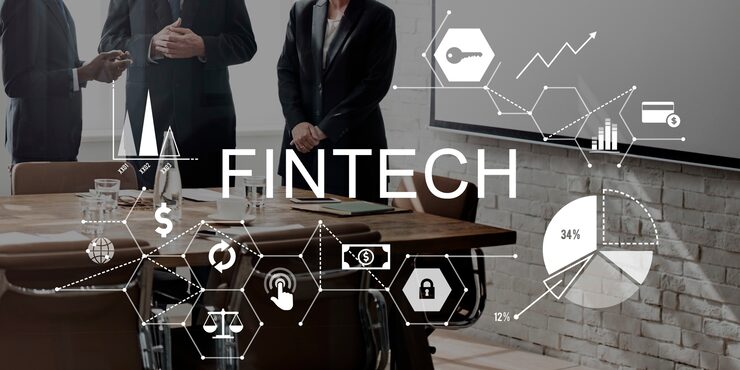Introduction
The fintech revolution is reshaping global finance, and by 2025, the digital banking industry will look entirely different. With the rise of AI, blockchain, and open banking, technology is redefining how people save, spend, and invest.
The next wave of financial technology trends promises more inclusion, personalization, and automation — creating a smarter, faster, and safer financial future.
1. AI-Powered Banking Becomes Mainstream
Artificial Intelligence is now the brain of modern banking. In 2025, AI-driven chatbots, predictive analytics, and automated financial planning tools help customers make smarter financial decisions.
Banks are using machine learning to detect fraud, personalize offers, and streamline loan approvals — reducing human error while improving customer trust.

2. Blockchain Builds a Transparent Future
Blockchain technology is moving beyond cryptocurrency. It’s now powering secure, tamper-proof transactions and instant cross-border payments.
By 2025, banks and fintech startups are integrating decentralized ledgers to eliminate intermediaries, cut costs, and ensure faster settlements. Transparency and security are becoming the new industry standards.
3. Digital Wallets and Contactless Payments Dominate
Cashless transactions are now the norm. Digital wallets like Apple Pay, Google Pay, and PayPal have made payments seamless.
In 2025, expect further growth through AI-powered payment insights, biometric authentication, and cross-platform wallet integration, giving users complete control over their finances.
4. Open Banking Expands Financial Freedom
Open banking allows customers to share financial data securely with third-party apps, leading to more personalized and competitive services.
By 2025, regulatory frameworks worldwide are promoting open APIs, empowering consumers to switch between providers easily and access better credit, savings, and investment tools.
5. Embedded Finance Everywhere
Embedded finance integrates financial services into non-financial platforms — like paying for a ride directly inside a transportation app.
In 2025, this trend is expected to dominate eCommerce, healthcare, and even entertainment industries, simplifying how people transact and borrow.
6. Decentralized Finance (DeFi) Goes Mainstream
DeFi platforms are disrupting traditional banking by allowing users to lend, borrow, and earn interest without banks.
In 2025, expect major fintechs to merge DeFi models with regulated frameworks, bridging innovation with compliance.
7. Sustainability and Green Banking Rise
Fintech is also driving sustainability. Green finance platforms now track carbon footprints and reward eco-friendly spending.
Banks are investing in environmental, social, and governance (ESG) technology, aligning profitability with responsibility.
8. Cybersecurity and Privacy Take Center Stage
With digital expansion comes risk. In 2025, AI-driven fraud prevention, multi-factor authentication, and real-time monitoring protect users from growing cyber threats.
Fintechs are prioritizing data transparency, giving customers full control over how their information is used.

9. Financial Inclusion Through Mobile Banking
The fintech 2025 era is empowering millions of unbanked individuals through mobile-first solutions.
From Africa to Southeast Asia, digital banking apps provide access to savings, credit, and investment — closing the financial gap and boosting economic growth.
10. Collaboration Between Banks and Fintech Startups
Rather than competing, traditional banks and fintech startups are joining forces. Partnerships enable faster innovation, regulatory compliance, and customer-centric products.
This hybrid model — combining traditional stability with digital agility — is defining the future of finance.
Conclusion
The digital banking industry in 2025 is more than just technology — it’s about trust, inclusion, and intelligence.
From AI-powered automation to open and decentralized finance, the fintech ecosystem is creating a world where banking is instant, personalized, and transparent.
For businesses and consumers alike, the fintech 2025 transformation is not just an upgrade — it’s a revolution.


